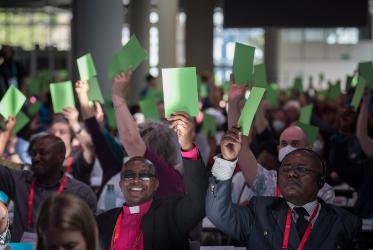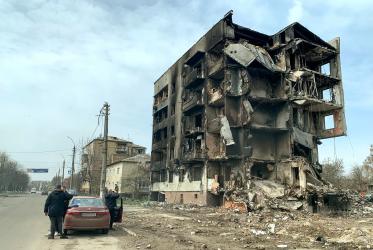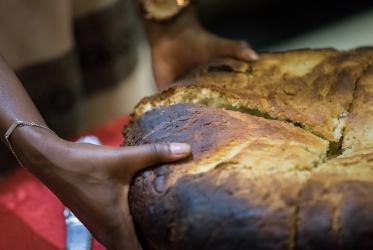Displaying 1 - 15 of 15
08 September 2022
Faith communities vital in overcoming hunger
18 March 2020
In South Sudan, times are difficult but churches serve together
16 October 2017
G7 must address famine
22 May 2017
Lutheran bishop remembers deceased refugees, urges church advocacy
16 December 2015
WCC general secretary speaks on reality of wars at Sant’Egidio meeting
12 September 2014











